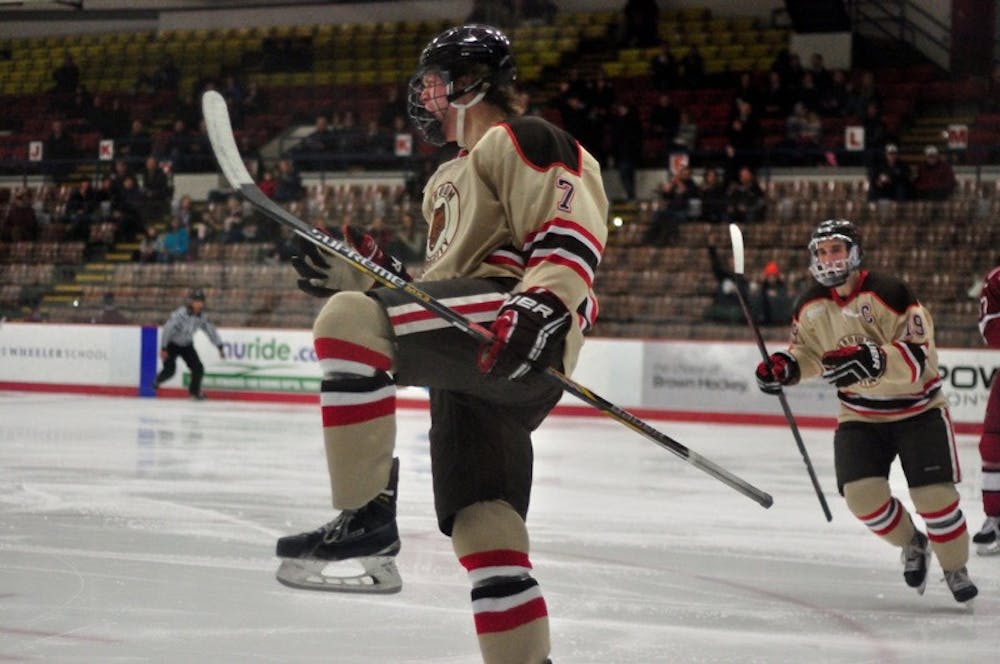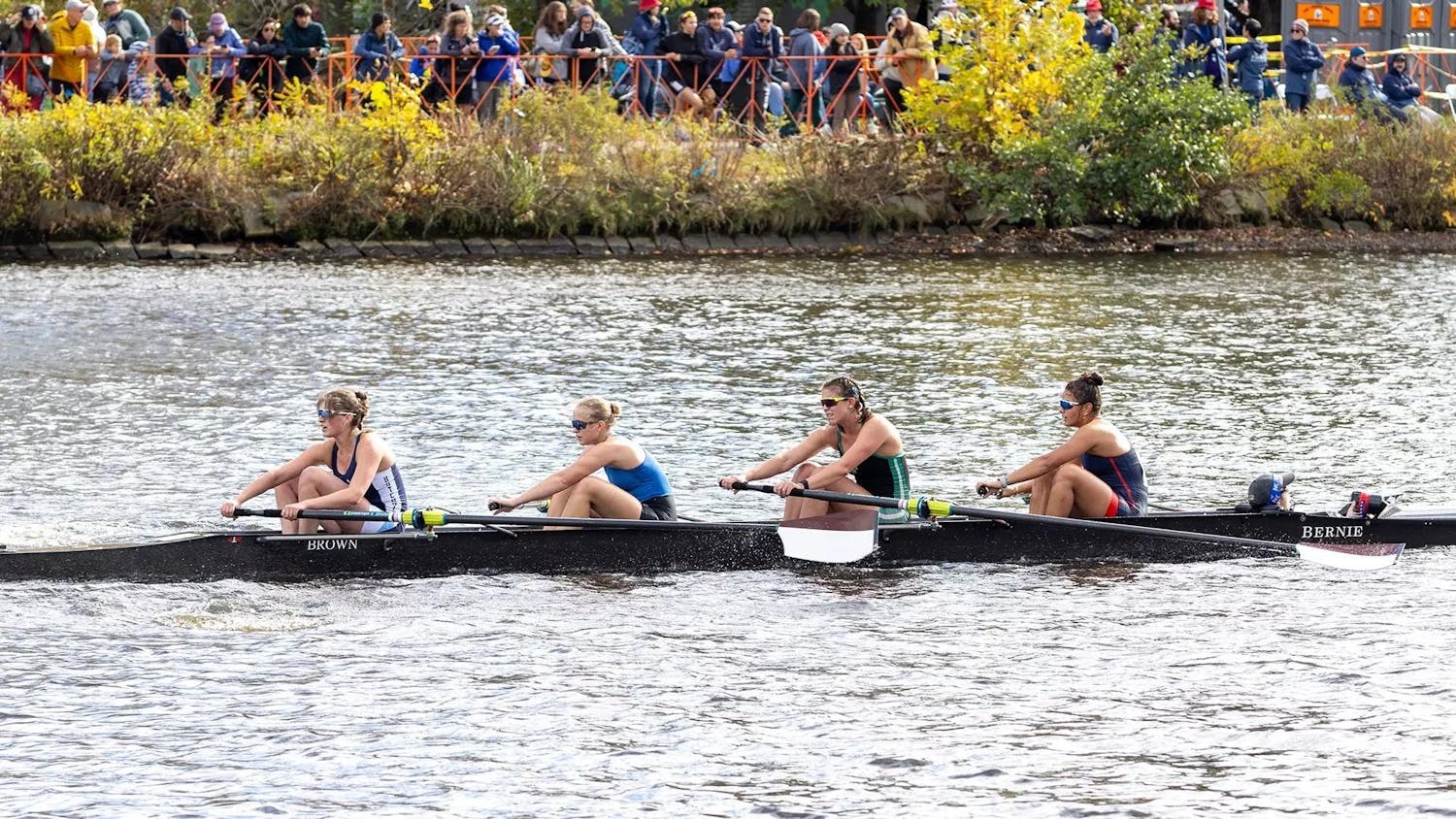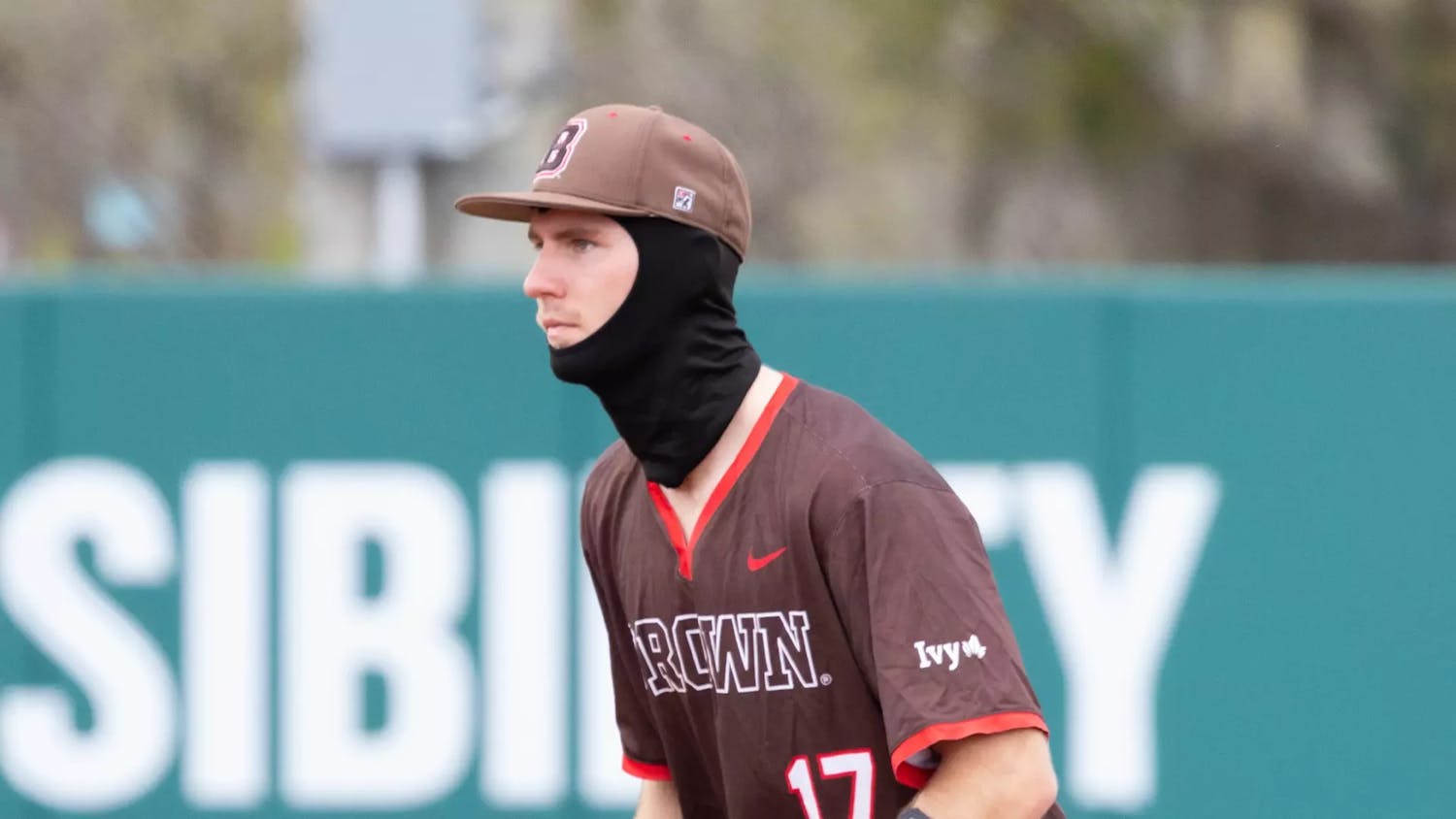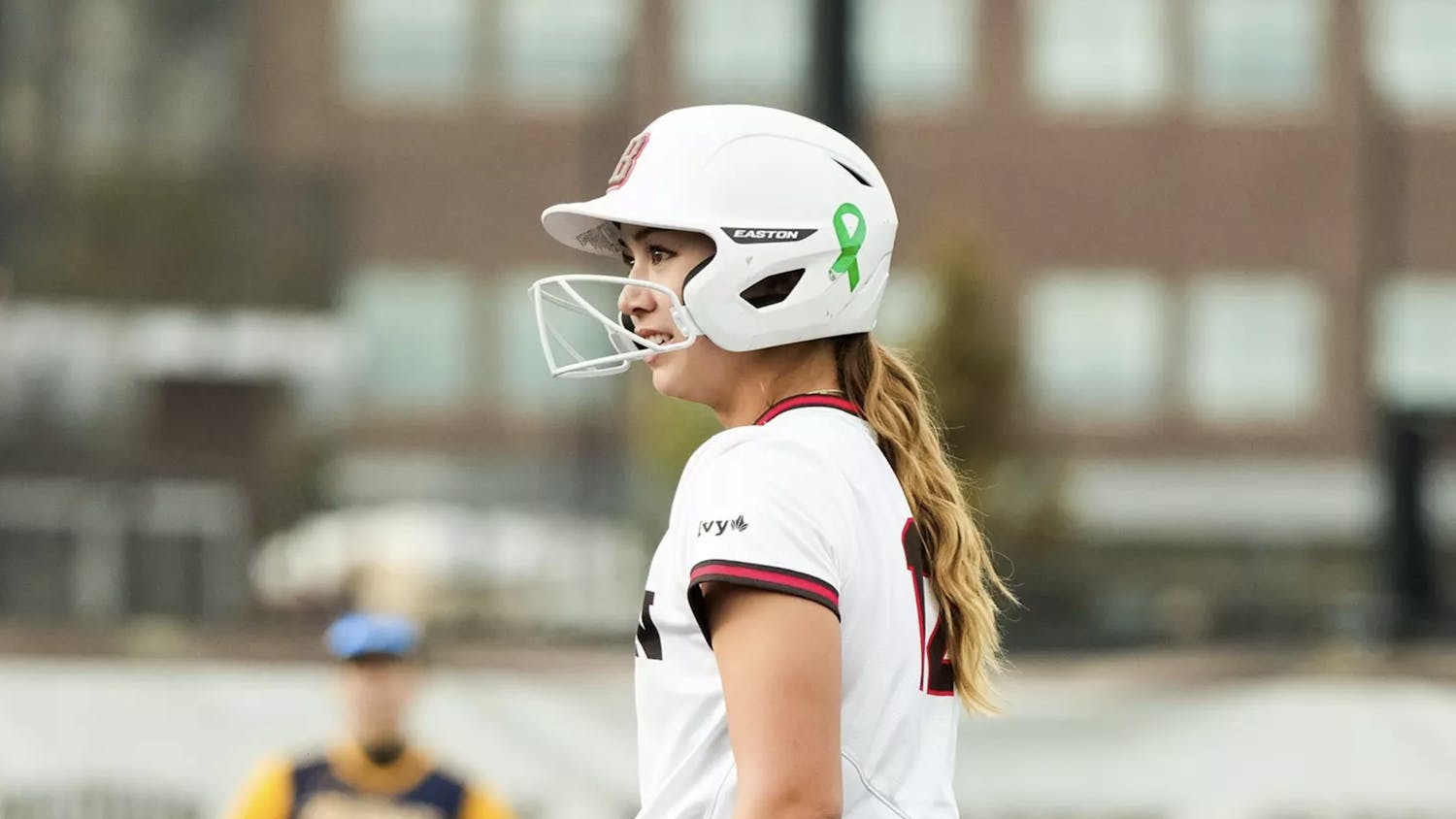Ever since LeBron James joined Chris Bosh and Dwyane Wade on the Miami Heat and counted all the NBA Finals that he was never going to appear in, modern sports has revolved around the idea of the Big Three. Teams from all sports have built and marketed themselves around three stars — from FC Barcelona’s three-headed offensive attack to the Chicago Blackhawks’ all-star forward line in the Stanley Cup playoffs last year.
The Brown men’s hockey team has embodied the importance of dynamic trios. The first line of Matt Lorito ’15, co-captain Mark Naclerio ’16 and co-captain Nick Lappin ’16 — who played on the same line for the better part of two consecutive years — accounted for 43 percent of the Bears’ points over the past two seasons.
But with Lorito having graduated and Lappin and Naclerio entering their final seasons on College Hill, the era of the Big Three of Brown men’s hockey is coming to a close.
Or is it?
A disappointing campaign for the Bears in 2014-15 did feature some bright spots, including the introduction of three first-years from Northeast preparatory schools, all of whom were chosen in the 2014 NHL Entry Draft. Tyler Bird ’18, Sam Lafferty ’18 and Max Willman ’18 each made noise in their opening campaign at Brown and helped the team build momentum in the latter part of the season.
Lafferty was the only one to not start his high school career in Massachusetts. The Pennsylvania native played two years in his home state before transferring to the elite prep school Deerfield Academy. Bird played for St. John’s Preparatory School before coming to Kimball Union Academy in New Hampshire, while Willman spent four years at Barnstable High School and a post-graduate year at Williston-Northampton.
Though all three ended up at prep schools, each one had a different journey to get to that level.
“My experience was a little different,” Willman said. “I played public school hockey and played an extra year at the prep school level where these guys played. That extra year definitely prepared me for the next step to college hockey.”
“I definitely had a great experience my senior year,” Bird said. “The head coach had coached at Maine for 11 years. He definitely knew what he was doing, and he prepared me … as well as he could for college hockey.”
Despite playing in different conferences, the three met each other on the ice the year before they came to Brown.
Lafferty said he played Willman three or four times over the course of the year, in addition to facing off periodically against Bird. “It was cool to see other recruits in the league, and we had some good battles there,” Lafferty said.
In the summer before all three headed to Brown, the NHL entry draft rolled around. The annual event features NHL teams selecting 18- to 20-year-olds, granting them the exclusive right to sign those players to professional contracts. These rights last until Aug. 15 of the year the player graduates college, and a team can sign its draftees whenever it feels they are ready to play. While Willman attended the draft, Bird and Lafferty waited from afar after hearing that teams had shown interest in them.
Taken in the fourth round by the Pittsburgh Penguins, Lafferty was the first Brown commit to be drafted. Eight picks later, Willman was selected by the Buffalo Sabres with the first pick in round five.
Bird said he interviewed with a few teams, and the Columbus Blue Jackets showed particular interest in him. “When it was (Columbus’) turn to pick, I was looking, and obviously I was pretty excited to be drafted — It’s a surreal feeling,” he said.
He was selected 16 picks after Willman at 137th overall.
Then came the decision about whether to attend Brown in 2014 or take an extra year to play juniors or in another league. Bird and Lafferty joined the team straight after their high school careers wrapped up. Bird — having played only four years of high school hockey — was one of the youngest players in college hockey in the 2014-15 season.
“It was my decision and the coach’s decision as well,” Bird said. “After my senior year, we all got together and decided that it would be best to come right in.”
“I was kind of all over the place. My plan was to take a year of juniors,” Lafferty said. But around early August, the Pittsburgh coaching staff expressed a desire for him to matriculate at Brown in the fall, and he complied with their wishes.
After playing four years of public school hockey — which typically does not draw the same type of professional attention — Willman had lower expectations for NHL interest. He made the decision to attend Brown with academics, rather than athletics, in mind.
“In the fall when I committed here, I didn’t have much interest from NHL teams, so my biggest thing was trying to get an education,” he said. “That’s still a major priority.”
Thus, the perfect storm for the Bears arrived: After a year in which Dennis Robertson ’14 was the only NHL draftee on the roster, three first-year forwards who had been drafted entered the fray.
But it was a baptism by fire for the first-year triumvirate, as the steep learning curve in college hockey forced them to adapt quickly.
“It was pretty difficult, obviously,” Bird said. “Guys are a lot older and more mature physically, so the speed of the game is unparalleled to prep school hockey. You have a lot less time on the puck and a lot less space, and it was pretty tough to adjust throughout the year.”
Their careers got off to an inauspicious start, as the Bears stumbled out of the gate. After losing their first seven games in conference play, the three first-years became frustrated with defeat and their lack of improvement.
“There were some low points,” Bird said. “In the middle of the season, I kind of plateaued and wasn’t really getting better.”
“It was definitely a bit frustrating in terms of points,” Willman said in reference to his offensive production. “I had around three, and that’s definitely a huge difference from the league that I had come from in years past.”
But after opening the year with his youngest players split up on different lines, Head Coach Brendan Whittet ’94 made the move to put the three on the same line behind the vaunted Lorito-Naclerio-Lappin front, and they began to improve as the year went on.
In the team’s second game against Princeton, Bird had a goal, Willman registered an assist and Lafferty chipped in with both.
“I just tried to stick with it and keep getting better,” Lafferty said. “And by the end, we were relied on more and more.”
“It worked out well,” Willman said. “We came from similar backgrounds. We banded together off the ice, and that helped on the ice.”
The season came to a dramatic halt as — after winning four straight ECAC games towards the end of the regular season — the Bears were swept in the conference tournament by eventual champion Harvard.
The sophomores enter this season with a year of experience under their belts and a drive to make waves in the ECAC.
“We know what to expect,” Bird said. “We can’t be shocked going into the games about how fast or good other players are. We know what they can bring, so we just have to think that we can do the same things they can and match them with our skill.”
“They’ve all looked better,” Naclerio said. “They are more confident with the puck and making good passes.”
“They all came back in great shape,” Whittet said. “They’ve all shown improvement, but we’ll continue to evaluate their progress day-to-day, and they’ll be very important moving forward.”
The offensive unit as a whole will need make up for Lorito’s departure, starting with the three sophomores.
Lorito “was a contributor on all parts of the ice,” Bird said, noting that he excelled on the penalty kill and the power play. “All three of us need to contribute in every area to fill in the spots that he’s leaving us.”
“We definitely need to take on more of a leadership role,” Willman said. “He was a captain, and we have two returning captains this year, but leadership is definitely a big part of the locker room.”
After a season in which the Bears only managed five conference wins and eight total wins, the biggest area of improvement for the team will need to be its record if it wants to compete in the ECAC and nationally.
“For all three of us, our biggest goal is to just win a lot more than last year,” Bird said. “That was one of the toughest parts of the year, when we were on a three- or four-game losing streak and you’re just thinking ‘What else can be done?’”
Despite their success on the same line last year, the NHL draftees might not start the year playing together, though that is subject to change.
“Right now, we have it mixed up a little bit,” Whittet said. “We try to have guys together that can feed off each other, so right now they’re on different lines, but we’ll see how that goes.”
For now — despite the choices between going to the NHL and staying in college — these three are focused on winning here in Providence.
“My biggest concern is not after college,” Bird said. “It’s just what I can do this year to improve this team in the win column and what we can do to make each other better.”
“We just care about Brown, and we want to win right now,” Lafferty said.
For the Bears, early-season aspirations always revolve around counting trophies at the end of the year.
“Our goal, like every year, is to win championships,” Whittet said. Those championships would be the ECAC regular season title, the Cleary Cup for the ECAC conference tournament and a National Championship.
Three is the magic number.





